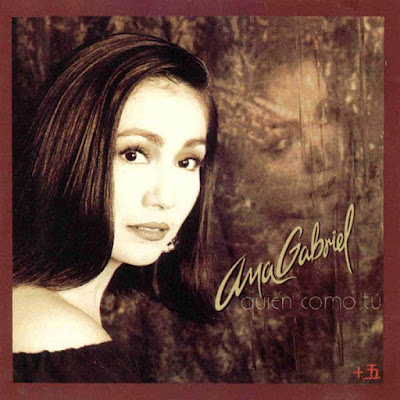If you were wondering where the faintly chugging guitar in the intro to "Peligroso Amor" went, don't worry: it went here. Sure, the first sound we hear is the delicate tinkling of plastic ballad keyboards, but this ends up being more like the sort of gently rhythmic ballad that was popular in the 80s; probably the most obvious example of the form is "Every Breath You Take," but I always think of it as the "Missing You" template. (Uh, by which I mean John Waite, not Puff Daddy.)
Chayanne's matured as a vocalist from his last time round; he's even taken on some Waitean cod-soulfulness; and, more importantly, learned to sing from somewhere besides his head. Last time, of course, he was lamenting a love who would not love him back; this time he's celebrating mutual love. The title translates as "Completely In Love," but since the adjectival phrase is plural, means more precisely "[two people] completely in love."
This also marks the smuggled return of Italy into our pop narrative; the song was originally written by a brace of Italians including the legendary Eros Ramazzotti, who is as much a Latin Pop star as an Italian one, and who we will only meet in such glancing ways throughout this travelogue (so far). And once that scrap of information falls into place, the production choice sounds perfectly reasonable: of course this is an Italian ballad converted into Spanish. How could it ever have sounded like anything else?








